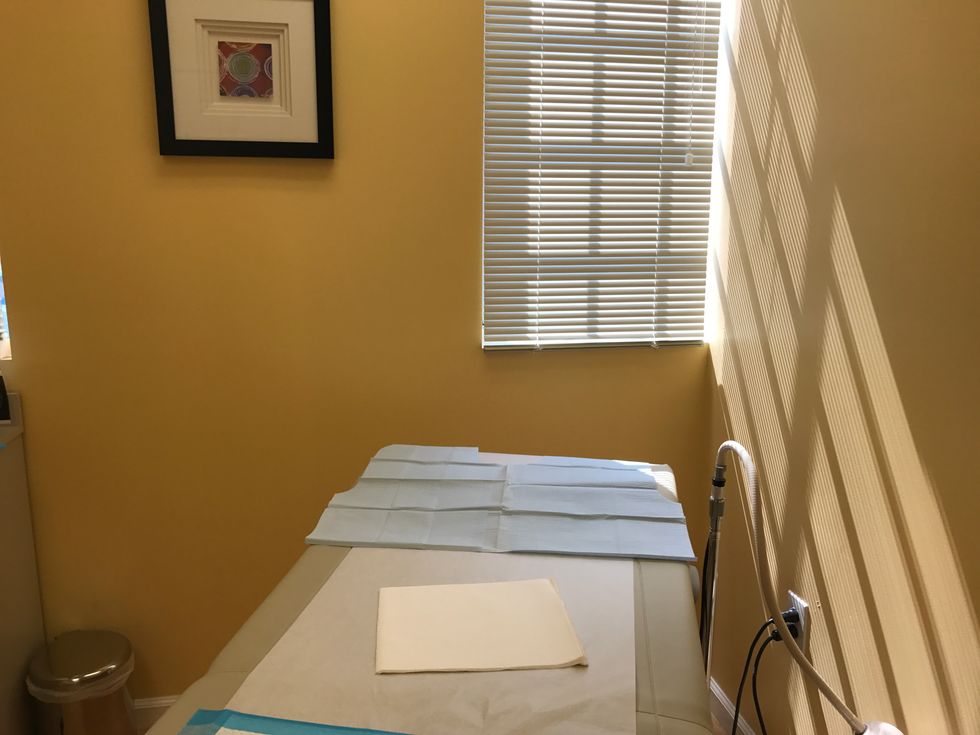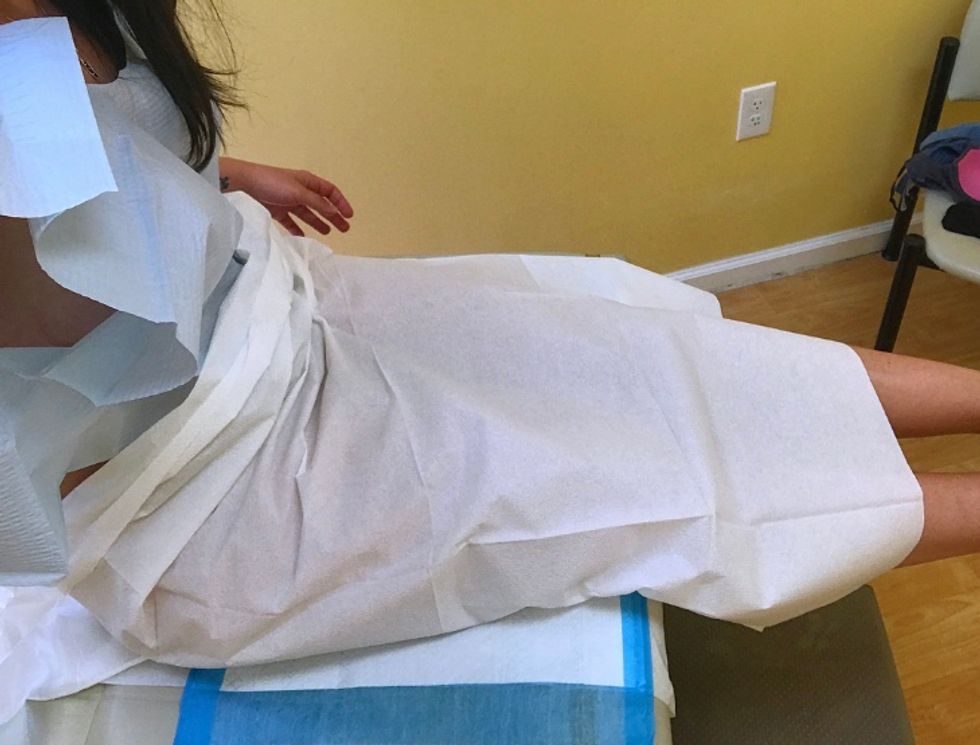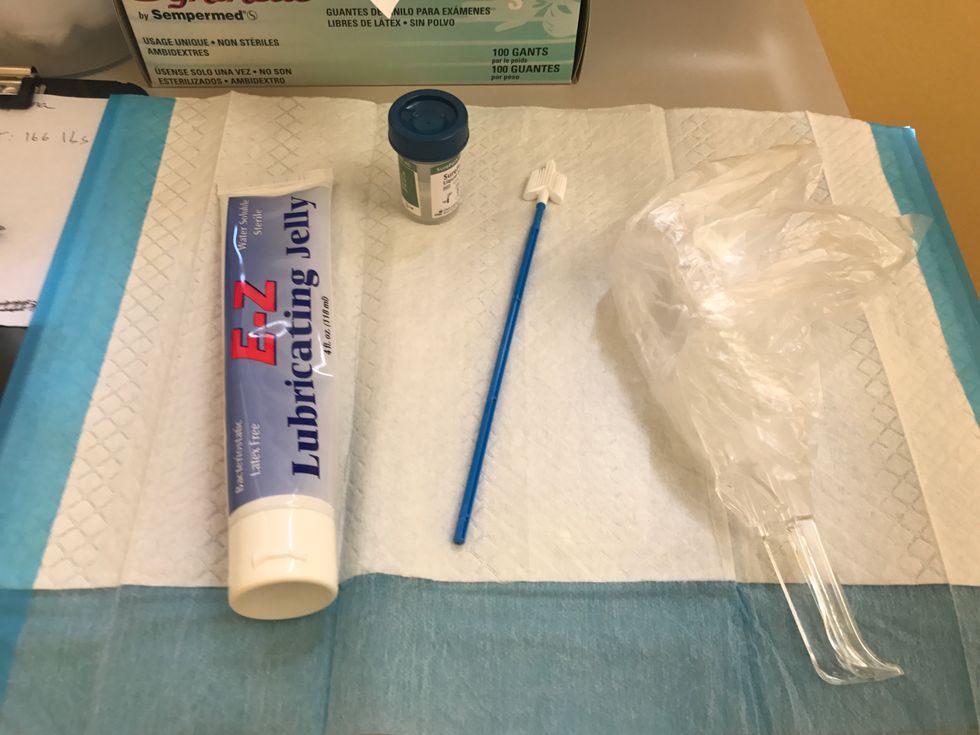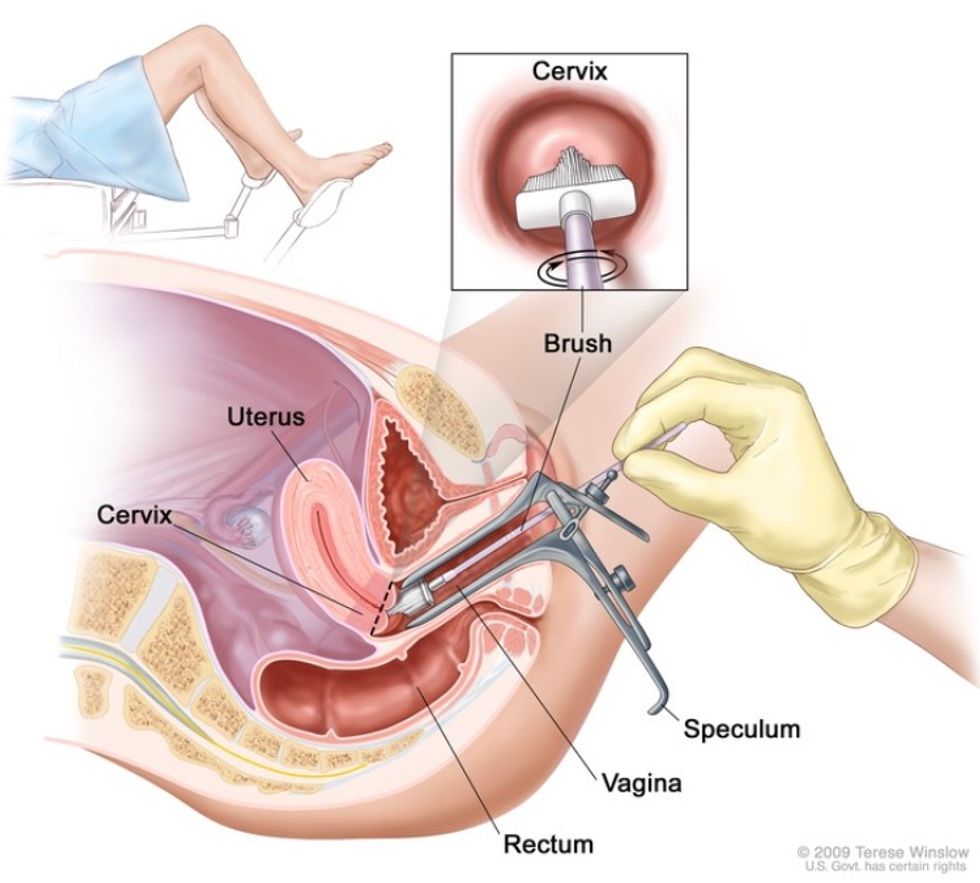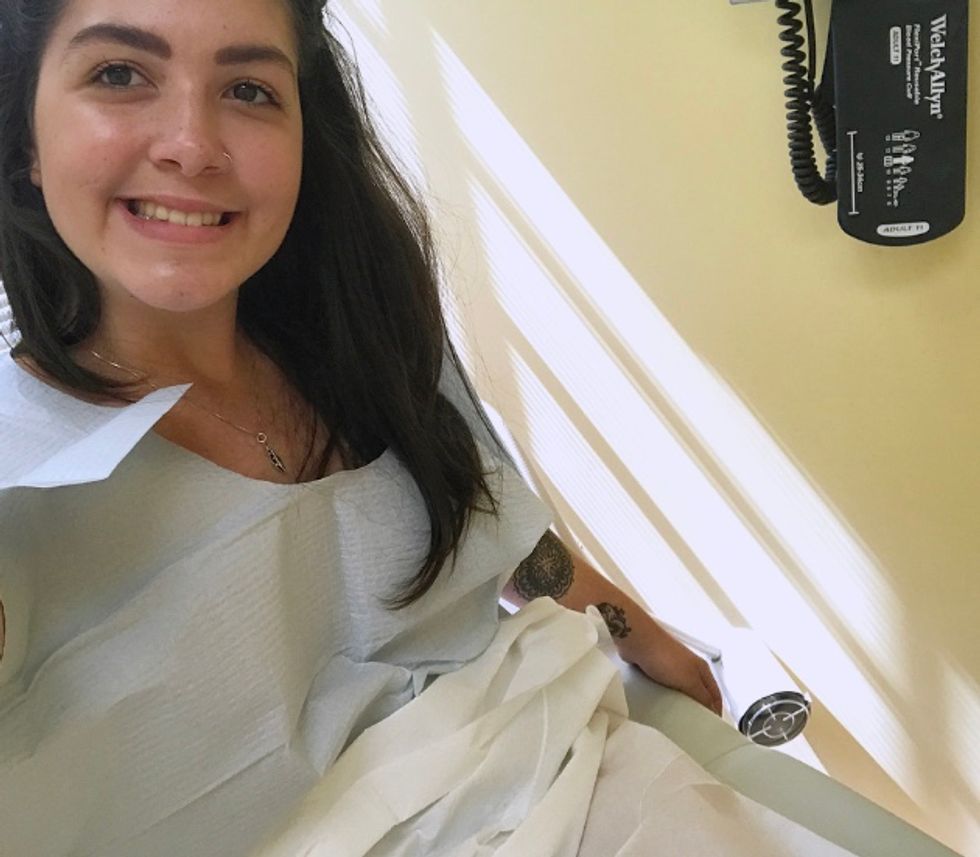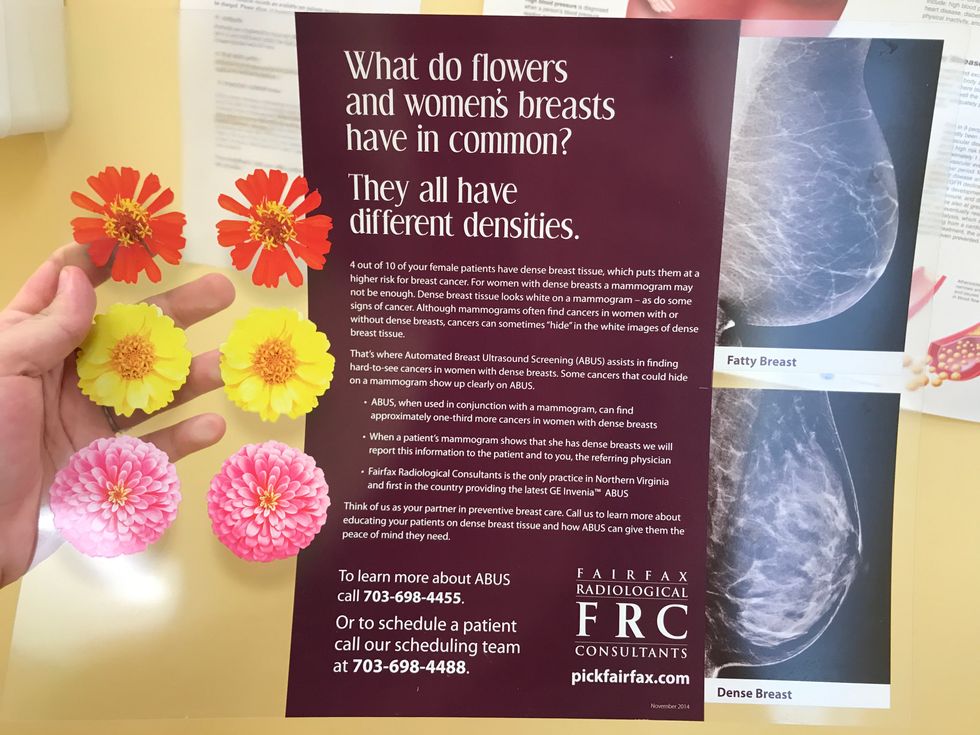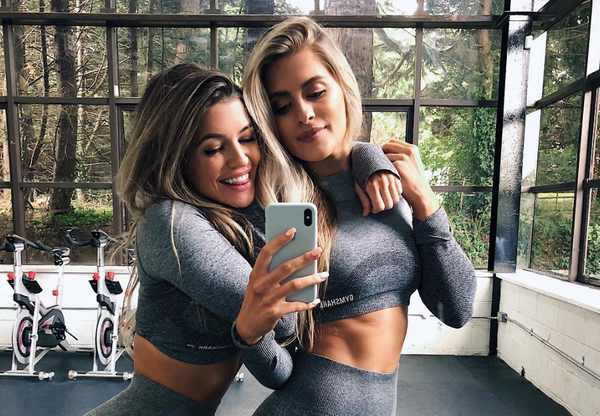Women's health.
A tricky subject in our day and age.
Ever since the beginning of time...and I mean literally, the beginning of time, society viewed women's health, and sensitive issues pertaining to women, as a delicate topic that must be kept secret, behind closed doors, and, ultimately, something very very private.
As a disclaimer, I do have to say that I was extremely privileged to grow up around men who taught me that women's health is just, well, health. It was outlined to me at a very young age that being able to talk about/ask questions about/express concerns about one's body was both important and necessary. Despite it all, though, I still felt pressingly nervous to discuss sensitive issues openly. I feel nervous and embarrassed writing this now, actually.
Trying to think back to when I first felt the sense that women's health was something to be kept private is actually quite a funny little story that mimics, in a small way, the social dynamics within the realm of women's health.
I was ten eleven years old, I had not started my period, and my grandmother took me to Barnes and Noble one day, a frequent thing we did (and still do). When we got there, however, she pursed her lips, looked at me and said, "you know what, I think that it is time for you to read something special." What she was talking about was a book called "Are You There God? It's Me, Margaret." This book was written in the 70's by Judy Blume, and is about a sixth grade girl going through bodily changes, emotial changes, and changes with how she percieves intimacy. In the book, the girl addresses her journal entries to God in an attempt to try to maneuver these changes and find normalcy and self love through it all.
We picked up the book, and headed to the counter Checking us out, there was a man who was maybe around 25, and he addressed me cheerfully. "Hi sweetie, did you find a book you wanted?" He said. I nodded, handing him over the book casually. Instinctively, he began flipping through the book. I will never forget what happens next. His eyes widened, his face turned bright red, and he nervously chuckled, "Oh! Seems like a book you should go home and talk to your mom about..."
I will never forget how embarrassed I was all of a sudden, that this man saw this book about a girl who is getting ready to get her period, growing pubic hair, breasts and, for the first time in her life, beginning to think intimately. It occurred to me that this man realized that I was getting this book because I was going to soon go through all of these things, too. I felt an intense sense of exposure and abnormality that followed me around for a long while.
Retrospectively, this situation can largely serve as a model on how these social interactions commonly go. I was not supposed to go home and talk to my parents about it. No, I was supposed to go home and talk to my mother. A woman. In the privacy of our home. This book, the mere mention of the words period, vagina, and tampon, were enough to send a grown man into a tailspin of embarrassed awkward laughter and a red face.
A year later, I was sitting on my loft bed one afternoon, reading a library book. My father was working in his office, and my mom and younger sister were out on a play date with another mother and her child. I remember flipping through the pages, and all of a sudden feeling an intense abdominal cramp, followed by another and another and another. I went to the restroom and, sure enough, my period.
I had an anxiety attack.
My mother was not home. I thought about telling my dad, and the idea of going through that embarrassment and shame in front of HIM, a dude I had to live with for the next six years, was not an option. I made a make shift pad out of toilet paper, and I ended up bleeding through my pants. I cried. He found out.
"Casey," he said, "let's take a trip to Rite-Aid." And so that story went. My dad was a super hero to me that day. He didn't force me to talk about anything, but he affirmed that this was totally normal, totally okay, and a beautiful sign that I was turning into the beautiful young lady he knew I would be. My father took a moment of embarrassment and shame and started a conversation (gently, and on my terms). It turned that moment of embarrassment into a moment of beauty and trust and it set the stage for any man that I would date in the future: A man is supposed to respect a woman's body, all parts and functions of it. And women are to respect both their own and other women's bodies, all parts and functions of it. Because of this, and many small moments like these, I can confidently say that I have picked a guy to be my partner who I would feel comfortable taking to any doctors appointment, and I know that if anything ever happened to me, I would have a hand to hold. That is important because that is love.
So many times, though, this is not how the story goes. I was talking with a friend in college. She is twenty, she has known her parents and brother for twenty years, and she was still a nervous wreck because of the fact that she had to schedule a gynecologist appointment while her mother was visiting family back in the Middle East.
"You don't understand," she said, "my dad and I do NOT talk about that."
And this is often how the story goes. In this society, we find commercials on TV about Viagra, sexual enhancement items, condoms and lubricant. Boobs and sex in movies is common, if not expected. But we will never, ever, ever see a commercial reminding women to get a Pap smear, a breast exam, or the normalcy of talking to their doctors about their bodies. In this society, it is normal to see a vagina in porn, but it is not normal to think about a vagina doing what the vagina's technical purpose is: have periods and have babies (man, how gross).
Now, the problem isn't that anyone shoots down Pap smears. If you ask most men, I'm sure they would prefer their mothers, wives, daughters, friends and sisters to be healthy and take care of themselves. If you ask most women, I'm sure they want to be up to date on their preventative care as well. It isn't about what society SAYS about these things, but instead it is about what society doesn't say, because they can't say it, because saying it would be unsexy, inappropriate and abnormal.
And that is why cervical cancer, known as the silent killer due to it lacking any symptoms until it is often too late, takes so many lives of women a year.
Because no body talks about it.
And this is why breast cancer and ovarian cancer take so many lives a year. Because woman do not know what to look for. Because women never thought "that was a sign." Because society talks about what is important and that stuff is neglected to be mentioned.
Because no body talks about it.
So today, I am going to talk about it.
Today, I got a Pap smear, and today, I am going to outline my experience so that maybe someone like me, someone who knows they want to be healthy but isn't quite sure about how these things work, but have a feeling that they should do something that has to do with general maintenance on their body etc etc etc...can stumble across this and know:
It is okay to talk about it.
A Pap smear is a test that takes samples of the cervical tissue out of the cervix and tests it so that it can out rule cervical cancer, STD's and other abnormalities and issues pertaining exclusively to women.
Women need to get Pap smears when they turn 21 or when they first become sexually active, which ever comes first.
When wrapping up my last check up with my doctor, she asked, "Have you gotten a Pap smear yet?"
I blushed. Even in front of a woman, I was embarrassed to admit that no, I hadn't.
"No...not yet..." I said quietly.
"Have you ever had anyone in your family to have cervical cancer?"
My face got even hotter, "Yes," I said, "my grandmother and her twin sister did."
She smiled at me, "Well, as you know, I am your PCP (primary care physician), so we can either find a gynecologist of your choosing, or, I can do one right here in this clinic for you, whatever you are most comfortable with." She said.
So there I was, a month later, figiting with my thumbs in the waiting room, sweating excessively, nervously awaiting my name to be called.
And then I had an idea.
What if I documented this experience, so that other ladies know what to expect? So that women can know what happens, what questions are asked, and that it is normal and okay to be extremely uncomfortable at the idea of the preventative care of getting a Pap smear, but very important that they do so anyways.
"Hi Casey! I can take you back now!" My doctor stated.
First, there was the steriotypical, status quo, "welcome to the doctors office" check in. A blood pressure check, a temp check, and a weigh in.
She then led me into the personal room, which was small, full of natural light and a warm yellow color.
She took several disposable linens out of a drawer, and told me I needed to remove every article of clothing that I had on.
She instructed me how to put them on, so that I could feel as covered as possible with her still being able to access all of the parts that she needed to examine.
This is typically what a woman will end up wearing at one of these types of exams. Over all, I felt very covered and way more comfortable than I anticipated.
These were the "weapons of torture" as I like to call them. You can see the brush-like swab, and the vile that was used to collect the cervical tissue from the smear.
The doctor asked me to hold as still as I could, but not to stress or be "uncomfortably" still. She told me to relax and breathe evenly. "This feels a little bit like a tampon, and may pinch just a little bit."
I can say that on my end, it was not painful. I have heard horror stories, and I know that everyone's body is different, but if I had to sum it up into a two words, I'd say it was "severely uncomfortable" at worst. She inserted the baggy-like speculum and brushed the inside of my cervix. There was slight stinging there, like a gentle pinch, but the whole ordeal lasted a mere 20 seconds.
"That's it!" she said sing-songily.
Meanwhile, I was still bracing myself for a life-altering strike of pain. To say that I was giddy was an understatement.
She then threw away the contaminated materials and sealed the vile that contained the tissue that was to be tested. The materials were slightly bloody, but she told me that that was extremely normal and that if I experienced light spotting and cramping throughout the rest of the day, to know that that was normal too. She said that my cervix looked totally healthy (proud of you, cervix! Keep up the good work!!!).
Up next was my breast exam, and during that exam she felt my arm-pits, my breast tissue, and my hips and pelvis and tummy, to look for lumps, bumps and swollen lymph nodes. We did find a hard little lump in my arm pit, but it was the same lump that I had had for the passed two years, and has not changed in shape, size or consistency and is still determined to be a "shotty node" (a lymph node that was swollen at one point due to infection or sickness and never quite turned back to normal, and now is a harmless, teeny, pebble-like mass that is completely benign and harmless in any way). She told me that everything was still tip-top status quo and then showed me this chart:
She asked me if I had any other questions, we talked a little, and then she bid me a farewell.
I left feeling comfortable with everything. I left feeling grateful that I had such a great doctor whom I can trust, and I was content and happy that I took my health into my own hands and am doing my part in preventative care so that I can lead a long, healthy, happy life to the best of my ability.
To me, this was an awesome experience. I have always had the privilege of having a health care policy through my father's work. To the many Americans who are privileged enough to have health care, please take advantage of it! And to the many who don't, if you google "free women's clinics near me," no matter where you are located, there is almost always a clinic that is free to the public or income-regulated for those who do not have health insurance. You may have to do some paper work and wait a week or two, but there is almost always a way to obtain basic preventative care like a breast exam, Pap smear, and a way to talk to your doctor about any other questions you may have, so that they can point you in the right direction.
Ladies, women's health is human health. It is no different than having a doctor listen to your heart beat with a stethoscope or take your blood pressure. Our bodies are our greatest gifts, and there never should be an ounce of shame when it comes to taking one's health into their own hands. Let's try to normalize the conversation of women's health, and remove the inherently taboo picture that society has painted regarding the sensitive issues pertaining to women. What is more beautiful than taking pride in your precious body, the only thing that you own entirely, and the temple that will be yours for the rest of your life?


